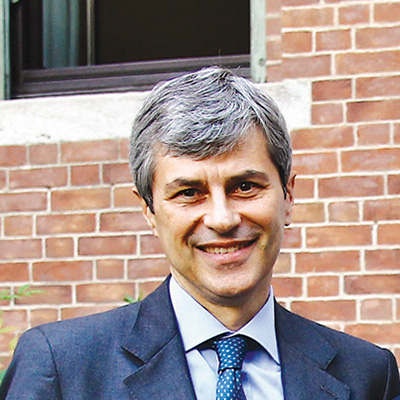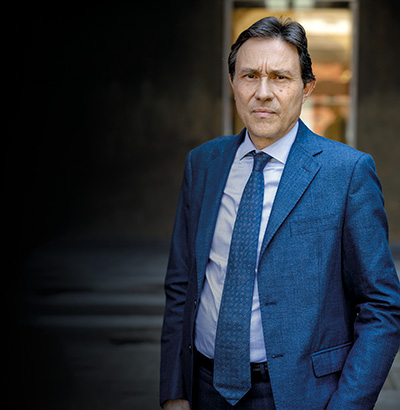A Truly Global Education: The Impact of Double Degrees at Università Cattolica
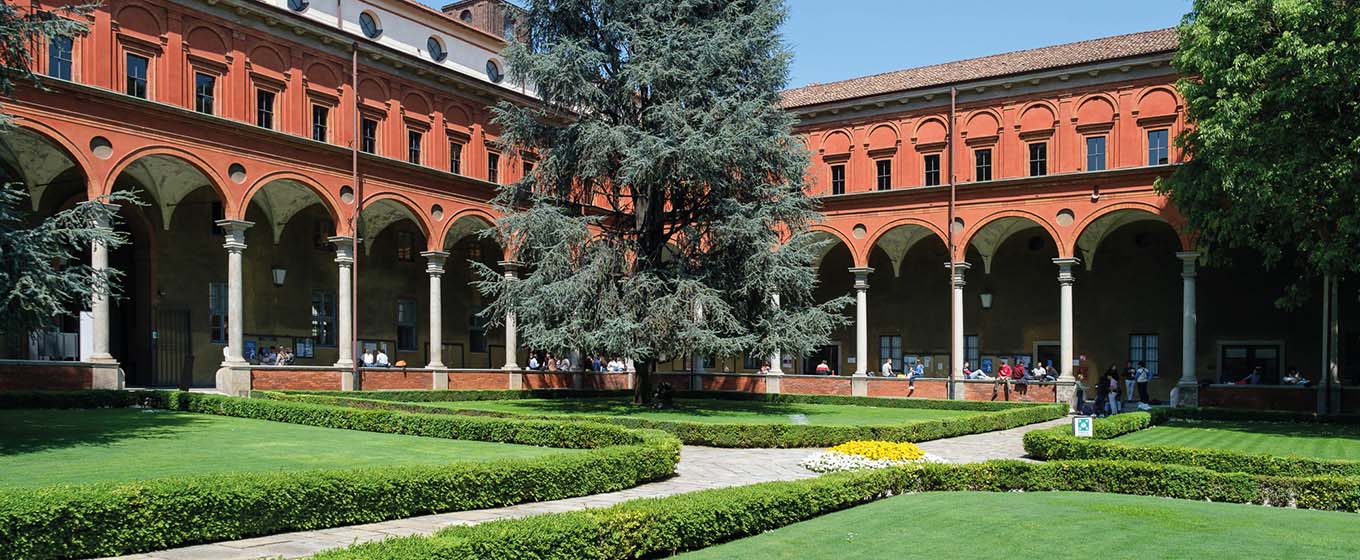
We interviewed the Deans of Università Cattolica Faculties to gain insights into the current and future impact of Double Degrees on faculty staff, employability outcomes, and academic offering. The article highlights the importance of offering a global education experience to students through Double Degree programmes, which can enhance their career prospects and equip them with skills to thrive in a global workforce.
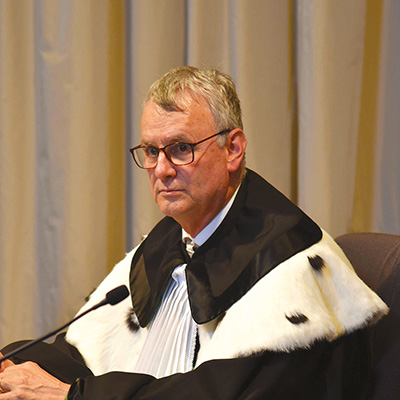 Professor Marco Trevisan
Professor Marco Trevisan
Dean of the Faculty of Agricultural, Food and Environmental Sciences
Double Degree programmes contribute to internationalising our classrooms and those of our partners. In your opinion, do these partnerships also have an impact on the internationalisation of the Faculty and research-related aspects?
The Faculty of Agricultural, Food and Environmental Sciences is, by definition, a very international faculty, thanks to its study abroad programmes, but also thanks to international, European, and non-European research projects that involve the entire faculty. Double Degree programmes certainly allow for an increase in the number of international students in our classrooms, and the faculty aims to increase the number of visiting professors from other institutions to further internationalise not only the research component but also the teaching component.
Currently, we already have visiting professors from the University of Wageningen and ISARA-Lyon, our Double Degree partners and we would certainly like to expand this opportunity to other institutions with whom we collaborate. The internationalisation brought about by Double Degree programmes allows our students to engage with different cultures and academic approaches. Knowing and understanding different cultures can open often unexplored horizons. The advantage of participating in this type of programme is primarily cultural and academic. The second benefit, in my opinion, is a competitive advantage for entering the job market. In addition to language skills, we should not forget that our classmates today will become our professional network tomorrow, reaching prestigious positions in companies, organisations, and institutions in Italy and abroad.
This type of connection, often based on the exceptional expertise acquired through these programmes, is what makes these collaborations increasingly prestigious and effective.
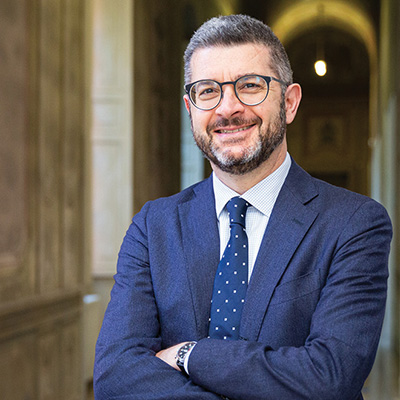 Professor Andrea Canova
Professor Andrea Canova
Dean of the Faculty of Arts and Philosophy
In 2016, Università Cattolica del Sacro Cuore and the Beijing Language and Culture University signed the first complete Italy-China Double Degree jointly activated by two faculties of humanities. What are the most relevant aspects of this experience from the perspective of the Faculty of Arts and Philosophy?
This is a programme that, despite the difficulties related to the pandemic, has brought many students from the Beijing Language and Culture University to study in the courses of our Faculty over the past seven years. So, they have not only spent a semester with us but there has been greater continuity in their presence. A significant improvement in their language level allows for a leap in the quality of learning and mutual enrichment as well as stimulates new reflections in our faculty members on a truly inclusive teaching approach.
The initial interest and curiosity of young Chinese students in Italian literature, theatre, and art during their stay in Milan at Università Cattolica, transformed into a more mature and profound knowledge of the cultural reality of our country. It is certainly a very demanding programme that pushes them to immerse themselves in a world that is not easily decipherable for them. Overall, I would say that we are satisfied with this programme, and we hope it can continue in the future, but above all, we hope to have provided our Chinese students in the Double Degree programme with good foundations to become the Italianists of the future, having developed critical and communicative skills that are adequate to make them effective interpreters of the growing efforts towards internationalisation of universities and educational systems, diplomacy, as well as the economic sector.
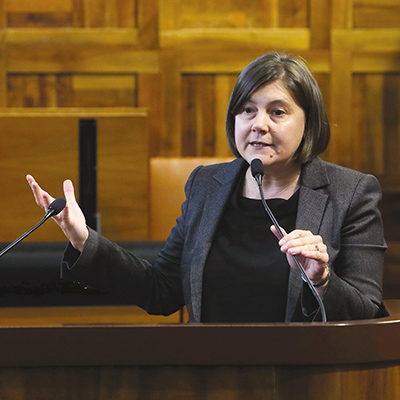 Professor Elena Beccalli
Professor Elena Beccalli
Dean of the Faculty of Banking, Finance and Insurance Sciences
Your Faculty has been very active in seeking and promoting Double Degree agreements with universities in the Netherlands, the UK and the USA. How did you come to select these universities as partners and what benefits did signing the agreements bring to the faculty in general?
Over the years, we realised that many graduates of the School of Banking, Finance and Insurance Sciences were looking for an international degree to add to their curriculum. The degree awarded by Università Cattolica del Sacro Cuore is a very prestigious title and proof of this is the excellent placement rate joined with the fact that many of our Master of Science students come from other universities from which they transferred after their bachelor studies. The objective has been - and continues to be - to make our University even more attractive to potential students, through a cutting-edge academic offering that brings into the Master of Science course an international pathway that in the past students did ex-post. Hence the choice of destinations in the USA, the UK and the Netherlands, which were the most popular destinations among our students. From the experience gained at the graduate level, an additional Double Degree experience also emerged at the undergraduate level, replicating the model on the bachelor's programme with a Double Degree partnership with Bangor University. Naturally, a strong driver in the development of this international agenda was the fact that the programmes involved in this Double Degree path at our University were entirely taught in English. Currently, four out of five Master of Science programmes in our School are taught in English. An English-taught degree programme generally attracts a student population with a strong international vocation, thus also fostering relationships with international partners.
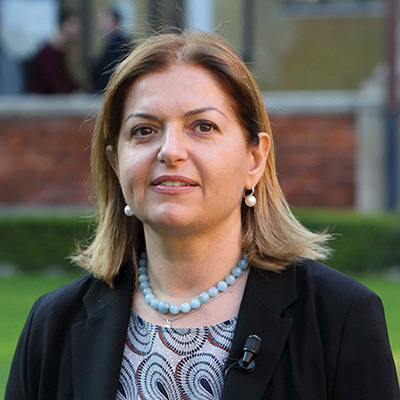 Professor Antonella Occhino
Professor Antonella Occhino
Dean of the Faculty of Economics
Within the framework of Double Degree programmes, the Faculty of Economics collaborates within the Master of Science in Management programme with the University of Western Australia in Perth and Boston University. Both universities have a prestigious international reputation and are ranked 90th and 108th respectively in the QS World University Ranking 2023.
As a Faculty with a strong international vocation, how do you think the landscape of Double Degree collaborations will evolve?
The Faculty of Economics has invested heavily in both mobility for individual semesters or short programmes and Double Degree programmes, based on its strong international vocation. The differentiation of the various programmes is aimed at adapting to the individual needs of students. These opportunities are available in both English and Italian degree courses. Currently, the Faculty has two Double Degree active agreements with the University of Western Australia and Boston University, both within the Master of Science in Management programme, which recently received EFMD accreditation for five years. The development of these Double Degree programmes represents a unique opportunity to position our degrees internationally. The common denominator is that both semester mobility and Double Degree programmes are placed in a perspective of mutual exchange and enrichment. This type of opportunity represents the best way to achieve double-valued internationalisation. Moreover, the Double Degree programmes can be attractive for both international and domestic students and a stimulus for the evolution of teaching activities to be positively influenced by international styles without losing the local peculiarities recognised as prestigious by employers.
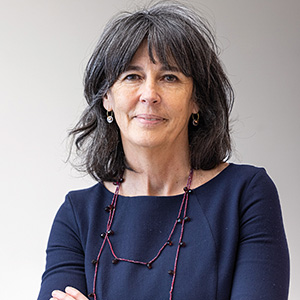 Professor Anna Maria Fellegara
Professor Anna Maria Fellegara
Dean of the Faculty of Economics and Law
Professor Fellegara, your Faculty was the first at Università Cattolica del Sacro Cuore to launch and promote a Double Degree programme in 2003. What is the added value of being an active partner within such an extensive network?
There are several benefits of being an active partner within an extensive international network.
Double Degree programmes are one of the most visible results of network cooperation. We currently run Double Degrees within the International Partnership of Business Schools (IPBS), a network to which our Faculty of Economics and Law belongs together with another 12 leading business schools around the world: Brock University (Canada), Elon University (USA), Northeastern University (USA), North Carolina State University (USA), University of San Diego (USA), Fundação Getulio Vargas (Brazil), DCU Business School (Ireland), ESB Business School (Germany), NEOMA Business School (France), Universidad de las Américas Puebla (Mexico), Comillas Universidad Pontificia (Spain), Lancaster University (UK); we also have Double Degree programmes with other non-IPBS universities: Avans University of Applied Science (Netherlands), California State University San Marcos (USA), Université Catholique de Lille (France).
Double Degrees represent a very valuable academic opportunity for students of the Faculty of Economics and Law in Piacenza. These are top-notch programmes broadening the scope of management and law studies, increasing the diversification and internationalisation of the curricula as well as fostering international careers for our graduates.
Double Degree programmes are the result of an intense collaboration involving curricula design, academic and operational coordination, physical and financial support for mobility, students’ global engagement and depending on close-knit relations with valuable and selected partners. In addition, these relations open international knowledge, experience and research to faculty members. Systematic benchmarking between network partners on the assurance of learning processes, content innovation, teaching methodologies and evaluation methods serve to ensure our faculty keeps abreast of advances in management and business disciplines, focusing on both their local and global implications.
Furthermore, active collaboration with our partners leads to joint research initiatives and peer-to-peer exchange of knowledge. For example, visiting professorships is one way to link faculty members in different locations worldwide. Being active in a network builds reputation, and so increases the visibility of the Piacenza campus with its strong international vocation, typical of Università Cattolica.
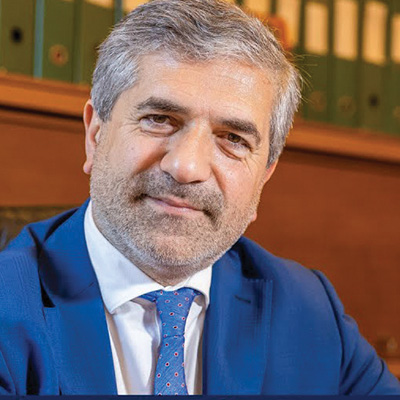 Professor Domenico Simeone
Professor Domenico Simeone
Dean of the Faculty of Education
The Faculty of Education is currently hosting a Double Degree student from Universidad de La Sabana. Could you tell us about the impact that this type of experience is having on the faculty and the university as a whole?
The commitment to building Double Degree programmes is proving that the Faculty of Education, despite being mainly focused on training people who will work at the national level with specific skills of the Italian educational system, can be equally attractive to international students coming from countries whose educational and social system is very similar to ours.
In particular, we are noticing a very interesting aspect for teachers who are involved in laboratories because the practical formative dimension proves to be particularly stimulating when developed taking into account the similarities and differences between different educational systems.
Through participation in the Double Degree project, international students can experience different pedagogical approaches and compare the different objectives of training and laboratory activities.
These differences, far from being factors of division, become an element of great importance for the development of the internationalisation of the Faculty.
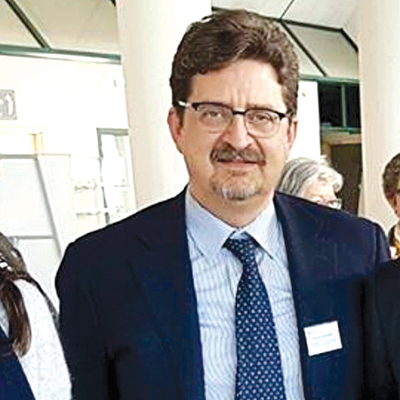 Professor Stefano Solimano
Professor Stefano Solimano
Dean of the Faculty of Law
The Faculty of Law currently has two Double Degree agreements in place with Boston College and Fordham University in New York. What are the impacts on the employability of Law graduates who have taken part in one of these programmes?
In terms of employability, the Faculty of Law of Università Cattolica has always been at a very high level, thanks to the prestigious degree awarded by our University, its reputation and the solid professional networks that the faculty has cultivated over the years with the world of law firms, the judiciary, but also the corporate world. In recent years, however, we have noticed a growing demand in Italy, with particular reference to the case of Milan, for graduates with international skills. Hence the need to enhance certain partnerships so that they could evolve into Double Degree courses. In particular, students with a greater international vocation can acquire specific skills by characterising their profile and broadening their competencies to include the American sector. These types of profiles are in great demand in many international law firms in Italy and abroad. Thanks to this successful experience we are naturally working to increase this kind of opportunity by including new international destinations, such as Australia.
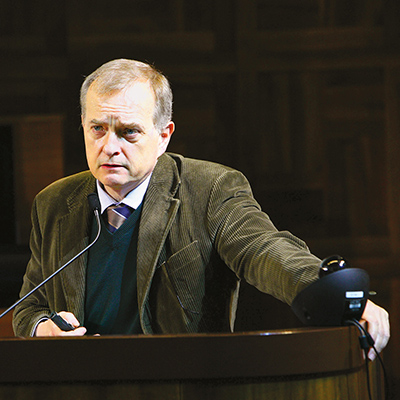 Professor Giovanni Gobber
Professor Giovanni Gobber
Dean of the Faculty of Linguistic Sciences and Foreign Literatures
The Faculty of Linguistic Sciences and Foreign Literatures offers its students the opportunity to participate in a Double Degree programme at universities in the Czech Republic, France, the Russian Federation, and China. In your opinion, what are the main differences between a semesterlong study abroad programme and a Double Degree programme in terms of benefits and employability skills for graduates in Linguistic Sciences?
Study abroad experiences provide students with the opportunity to establish, activate, and cultivate relationships, both from an academic and a professional perspective. A Double Degree programme offers greater visibility for a student's future career, primarily owing to an acquired markedly international profile. The validation of acquired competence, jointly made by two universities, provides greater depth to the student’s learning path, as well as to the profile of those who are preparing to enter the job market. It is imperative to note that the relationships established during such programmes are crucial for the student’s future professional network and can be leveraged both internationally and locally.
Additionally, the intersectionality of academic paths at the two institutions participating in the Double Degree programme allows students to broaden their academic, cultural, and linguistic spectrum. Noteworthy examples include the Faculty of Linguistic Sciences and Foreign Literatures and the Faculty of Italian Studies at the University of South Bohemia, as well as the prestigious Double Degree with Sorbonne University in Paris. Other examples include Double Degree programmes with Beijing and Novosibirsk, two destinations that enable our students to acquire non-European degrees that hold value both locally and internationally.
In conclusion, the Faculty of Linguistic Sciences and Foreign Literatures has made a substantial investment in this type of programme, as we firmly believe that the acquisition of academic skills and competencies will be significantly expanded, thanks to the professional network established with the faculty, fellow students, and other stakeholders.
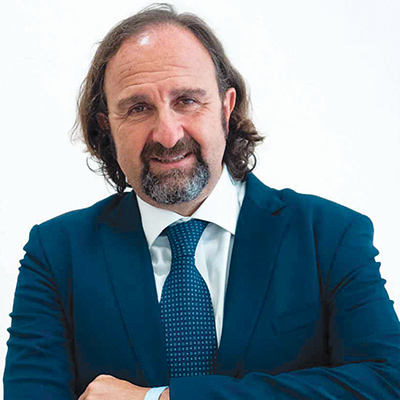 Professor Antonio Gasbarrini
Professor Antonio Gasbarrini
Dean of the Faculty of Medicine and Surgery
In 2019, Università Cattolica del Sacro Cuore signed a Double Degree agreement with Thomas Jefferson University in Philadelphia, the first example of a recognised Double Degree in Medicine and Surgery in both the European Union and the USA.
What impact has this collaboration had at the academic level and how do you think it influences the appeal of our University to international students?
The collaboration began with the Sidney Kimmel Medical College, the private medical school with the highest number of graduates in the USA, and where 20-25% of all students apply for admission. The international degree programme in Medicine at Università Cattolica taught exclusively in English, started with the first cohort of students in 2013. Its curriculum has been modelled on the best international medical schools and has an interdisciplinary approach with early integration of basic and medical-surgical disciplines.
Due to the expectations of international students for post-graduate training, the two medical degree programmes began to explore some integration possibilities. A team of experts from both institutions worked for two years to create an unprecedented educational project that allows successful students to obtain two medical degrees in six years and nine months, valid for medical practice in North America and throughout Europe.
The increased attractiveness of the Medicine and Surgery programme at Università Cattolica appears to be partly due to the popularity of the Double Degree path with Thomas Jefferson University. The Double Degree project has acted as a catalyst for academic collaboration that has begun to involve several faculties and degree programmes.
The collaborative exchange has not been limited only to international medical students but has also involved residents, staff from the University Hospital, and many professors from the Faculty of Medicine. Exchange mobility programmes have been funded through Erasmus+ projects generated by scientific collaboration between colleagues from both institutions in the fields of Public Health, Vascular Pathology, Neuroscience, and General Medicine.
These programmes have encouraged mutual understanding and sharing, resulting in the establishment of clinical case discussion boards, joint research projects, scientific publications, and various meetings. Collaboration in the field of Neuroscience has been particularly successful, with funding for research and the construction of a new building (Brain Center) on the campus where all research and clinical activities in the field of Neurosciences will be centralised. The Double Degree programme is undoubtedly the highlight of the collaboration with Thomas Jefferson University, but it is part of a visionary project that establishes the two institutions as pioneers of new forms of academic collaboration and exchange at all levels.
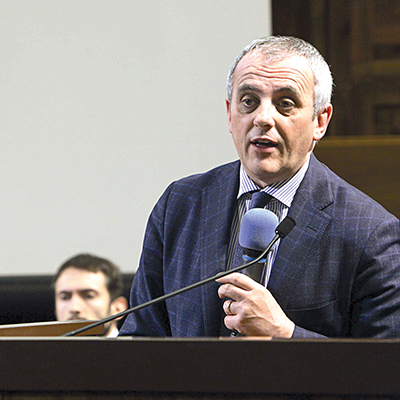 Professor Guido Merzoni
Professor Guido Merzoni
Dean of the Faculty of Political and Social Sciences
The Faculty offers its students the opportunity to obtain a Double Degree of a Master of Science in European and International Policies from our University and the Master of Science in European and International Economics from Martin-Luther-Universität Halle-Wittenberg, an agreement signed 10 years ago. What do you think the impact of these collaborations will be on the faculty and its graduates in the next 10 years?
The agreement with the University of Halle-Wittenberg was signed in October 2009, and the first student enrolled in the programme the following year. The first students to complete the programme, two from Università Cattolica and one from the University of Halle-Wittenberg, graduated in the academic year 2010/2011.
To date, around 100 students have participated in the programme, with the number increasing over the years, except for the most recent ones, which were marked by the pandemic. Most of these students, after a year of studying in Italy and a year in Germany, found employment very quickly, especially in companies involved in commercial exchanges between the two countries and in institutions that promote and facilitate such exchanges. The multidisciplinary and linguistic skills of the graduates, with a particular emphasis on economic profiles, make their profile particularly interesting for such realities, in a context in which Germany and Italy are among each other's top trading partners. An exchange that focuses on industrial production, particularly in machinery, automotive, chemical/pharmaceutical, and electrical/electronic sectors.
But the value we attach to this initiative is rooted in profiles that go far beyond its, admittedly very appreciable, success in terms of educational and occupational outcomes. Because it is a small sign, a small contribution, if you will, to the path of European construction. A fundamental process for the contribution that a stronger and more cohesive Europe can make to the common good within and on a global scale.
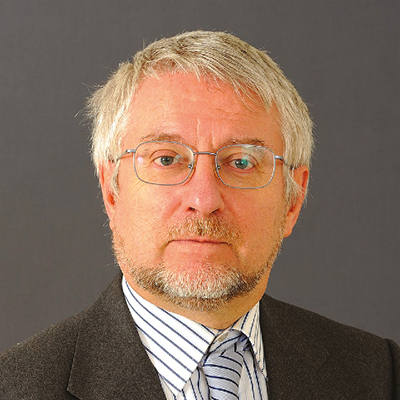 Professor Alessandro Antonietti
Professor Alessandro Antonietti
Dean of the Faculty of Psychology
For years, the Faculty of Psychology has welcomed students from non-EU universities who obtain a Double Degree from their home institution and Università Cattolica del Sacro Cuore. What is the benefit of being able to obtain a qualifying degree from a European Union university, and what impact has it had on the internationalisation and composition of the classes?
Undoubtedly, studying at an international university offers several benefits, such as improving language skills, developing adaptability, and cultivating an open-minded attitude. However, a Double Degree programme in psychology offers a unique opportunity to gain insights into different approaches to practising psychology. Each country has its own study path to becoming a psychologist, depending on the local regulations, culture, and history of psychology. Pursuing part of one's studies in another country means encountering diverse perspectives on psychology and a distinct professional world with its own organisational structure. This exposure to alternative views of psychology helps students appreciate that there is no standard way of being a psychologist. Rather, tools and practices are relative to the needs of a specific context. In a rapidly changing world where professions often require reinterpretation based on new needs and demands, a Double Degree programme helps students avoid absolutising their knowledge, evaluate practices concerning their context of the application (which is an aspect of critical thinking), and develop the necessary flexibility to adapt to changing circumstances.


